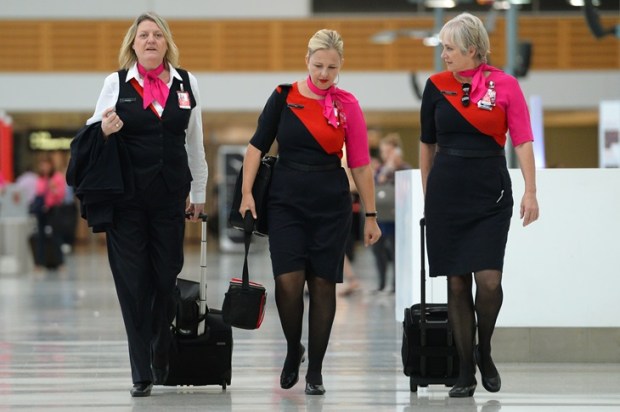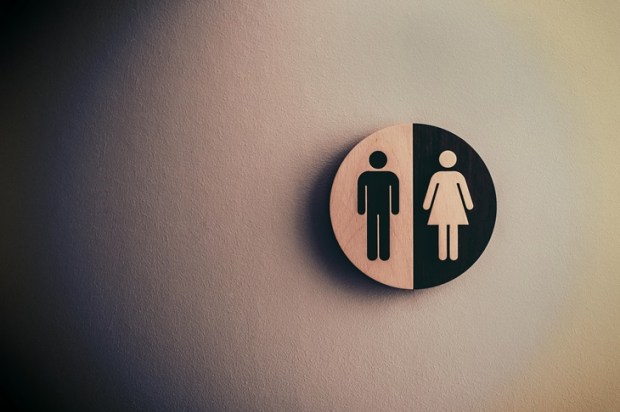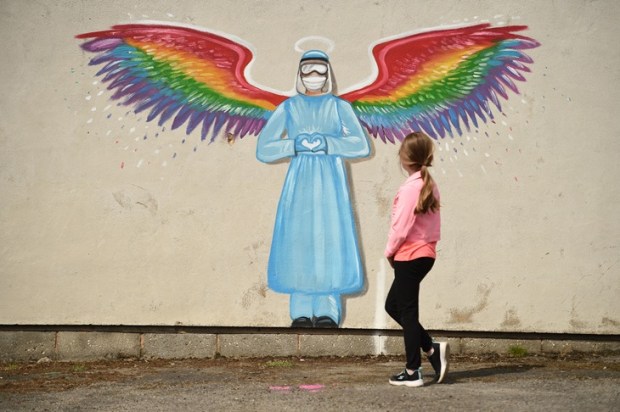The burial this week of Hannah Clarke and her three children after their appalling and horrific murder by an evil and demented husband illustrates how terrifying and unforgivable domestic violence is — and how it can never be justified.
At the same time, it’s vital to understand that the majority of men are innocent and it is wrong for feminists to paint all men as misogynist and guilty of toxic masculinity; a view of manhood characterised by the sexual exploitation and commodification of women, domestic violence and men being closed emotionally.
In her book Boys Will Be Boys the feminist activist Clementine Ford argues toxic masculinity is an inherent part of being a male and goes as far as suggesting women are better off not living with their husbands full time.
The radical feminist Shulamith Firestone in her book The Dialectic of Sex goes even further when arguing the ultimate goal is to make men redundant by eliminating “the sex distinction itself” a situation where “genital differences between human beings would no longer matter” and where “artificial reproduction” would mean men were no longer needed.
It’s also wrong to argue Western countries like Australia are characterised by structural sexism. Drawing on neo-Marxist critical theory a situation where radical feminists argue even though women might be comfortable with their roles in society and feel they are treated fairly, the reality is society is inherently violent and oppressive towards women.
Amanda Keddie, an academic at Deakin University, argues in an article on EduResearch Matters: “Violence against women has its roots in our gendered society where ideal masculinity continues to be associated with strength, power and wealth and ideal femininity with deference, softness and physical objectification”.
The American Psychological Association’s ‘Guidelines for the Psychological Practice with Boys and Men’ reinforces the belief that masculinity is “socially constructed” and that in Western societies it is associated with “authority, social power and privilege”. A form of masculinity that is “hegemonic” and that “strongly influences what members of a culture take to be normative”.
Additional evidence of this deficient view of masculinity can be found in the gender fluidity Safe Schools and the Respectful Relationships programmes implemented in schools across the nation teaching students that the sole cause of domestic violence is the gendered nature of capitalist societies.
Even though the Victorian Royal Commission concludes 25 per cent of family violence involves men as victims the Respectful Relationships program suggests it’s only women who are at risk. Boys and men are portrayed as misogynist and inherently violent.
While it’s understandable given the Australia wide publicity depicting boys at Melbourne’s St Kevin’s College singing an offensive and sexist chant that misogyny is widespread the reality proves otherwise.
The United Nation’s survey titled ‘2020 Tackling Social Norms A Game Changer for Gender Inequalities’ concludes when ranking 71 countries in terms of treating women fairly and achieving gender equality Australia is a world leader.
The United Nation’s survey measures bias against women under the headings of political, educational, economic and physical integrity including “intimate partner violence” and concludes compared to other countries in Australia there is a very low level of bias against women.
Notwithstanding the claim by feminists that nothing has improved in terms of gender equality the United Nation’s survey also concludes the “progress in the share of men with no gender social norms bias was largest in Chile, Australia, United States and the Netherlands”.
We now have widespread acceptance of women playing in traditional men’s sports like cricket and Australian Rules Football proven by the record crowds and success in this week’s 2020 World T20 Cup.
We also have positive discrimination in favour of women where it is not unusual for businesses and government departments to set quotas based on gender instead of merit and ability.
It should not surprise that girls achieve better results than boys in terms of Year 12 results and tertiary participation, live longer and that there is a greater chance of men being the victims of violence and committing suicide.
What’s to be done? As argued by the American feminist Camille Paglia the first thing is to stop denigrating boys and men. Paglia argues “if women seek freedom, they must let men too be free” and that always attacking men is “peevish”, “unpalatable” and “unjust”.
In schools, instead of denigrating boys and men, students should be taught the benefits of virtuous masculinity; one that involves boys and men capable of earning respect by showing compassion, integrity, courage and faith.
Instead of the curriculum being feminised by adopting teaching styles and classroom practice suited to the way girls learn it is also vital that schools acknowledge that boys need a more structured and disciplined environment where explicit teaching prevails.
Kevin Donnelly is a Senior Research Fellow at the Australian Catholic University and author of A Politically Correct Dictionary and Guide (available at kevindonnelly.com.au).
Illustration: Flickr.
Got something to add? Join the discussion and comment below.
Got something to add? Join the discussion and comment below.
Get 10 issues for just $10
Subscribe to The Spectator Australia today for the next 10 magazine issues, plus full online access, for just $10.


























Comments
Don't miss out
Join the conversation with other Spectator Australia readers. Subscribe to leave a comment.
SUBSCRIBEAlready a subscriber? Log in